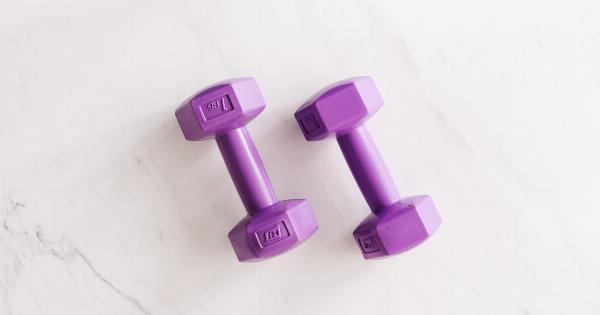For those who love to work out or do physical activities regularly, muscle strain and pain are common occurrences.
While rest and stretching are essential for healing, a balanced diet with the right nutrients can also help alleviate pain and promote muscle recovery. In this article, we will discuss ten foods that can help alleviate pain and muscle strain after exercise.
1. Turmeric
Turmeric is a spice that contains a potent anti-inflammatory compound called curcumin. Studies have shown that curcumin can help reduce inflammation and muscle damage caused by intense exercise.
Adding turmeric to any dish either fresh or dried can help you reap the benefits of this spice. You can also drink turmeric tea or take turmeric supplements for added benefits.
2. Ginger
Ginger, similar to turmeric, also contains anti-inflammatory compounds that can help reduce pain and muscle soreness. In particular, ginger has been shown to help alleviate pain caused by exercise-induced muscle injury.
Including ginger in your diet can be as simple as adding it to your tea, smoothies, or meals.
3. Tart Cherries
Tart cherries are loaded with antioxidants and anti-inflammatory compounds that help reduce muscle damage and inflammation.
Studies have shown that consuming tart cherry juice or supplements can help alleviate muscle pain and improve muscle recovery after intense exercise. It is recommended to drink tart cherry juice or take tart cherry supplements before and after exercise for better results.
4. Salmon
Salmon is one of the best sources of omega-3 fatty acids, which can help reduce inflammation and alleviate muscle soreness. Omega-3s can also improve muscle recovery and promote muscle growth.
Adding salmon to your meals once or twice a week can help you reap the benefits of this nutrient-dense food.
5. Berries
Berries like blueberries, strawberries, and raspberries are high in antioxidants, which help reduce inflammation and alleviate pain caused by intense exercise. Berries are also a good source of fiber and vitamins C and K.
Adding berries to your smoothies, yogurt, or oatmeal can help you incorporate them into your diet easily.
6. Leafy Greens
Leafy greens like spinach, kale, and collards are packed with vitamins A, C, and K, minerals, and antioxidants. These nutrients work together to reduce inflammation, promote healing, and protect cells from damage caused by free radicals.
Adding leafy greens to your meals or smoothies can help you incorporate these nutrients into your diet easily.
7. Eggs
Eggs are a good source of protein, vitamins, and minerals. They contain amino acids that are essential for muscle growth and repair. Eggs also contain choline, a nutrient that helps reduce inflammation and improve brain health.
Eating eggs for breakfast or snacks can help you meet your daily protein intake and support muscle recovery.
8. Nuts and Seeds
Nuts and seeds like almonds, walnuts, pumpkin seeds, and chia seeds are rich in healthy fats, protein, and minerals. These nutrients can help reduce inflammation and support muscle recovery.
Adding nuts and seeds to your meals or snacks can help you meet your daily nutrient needs and alleviate pain caused by intense exercise.
9. Dark Chocolate
Dark chocolate contains antioxidants called flavanols, which promote muscle recovery and reduce inflammation. Studies have shown that consuming dark chocolate before and after exercise can help improve muscle function and reduce pain.
Consuming dark chocolate in moderation can be a healthy addition to your diet.
10. Watermelon
Watermelon is a juicy fruit that contains high levels of an amino acid called L-citrulline. This amino acid helps reduce muscle soreness and improve muscle recovery after exercise.
Adding watermelon to your smoothies or eating it as a snack can help you meet your daily nutrient needs and alleviate muscle pain and soreness.



























